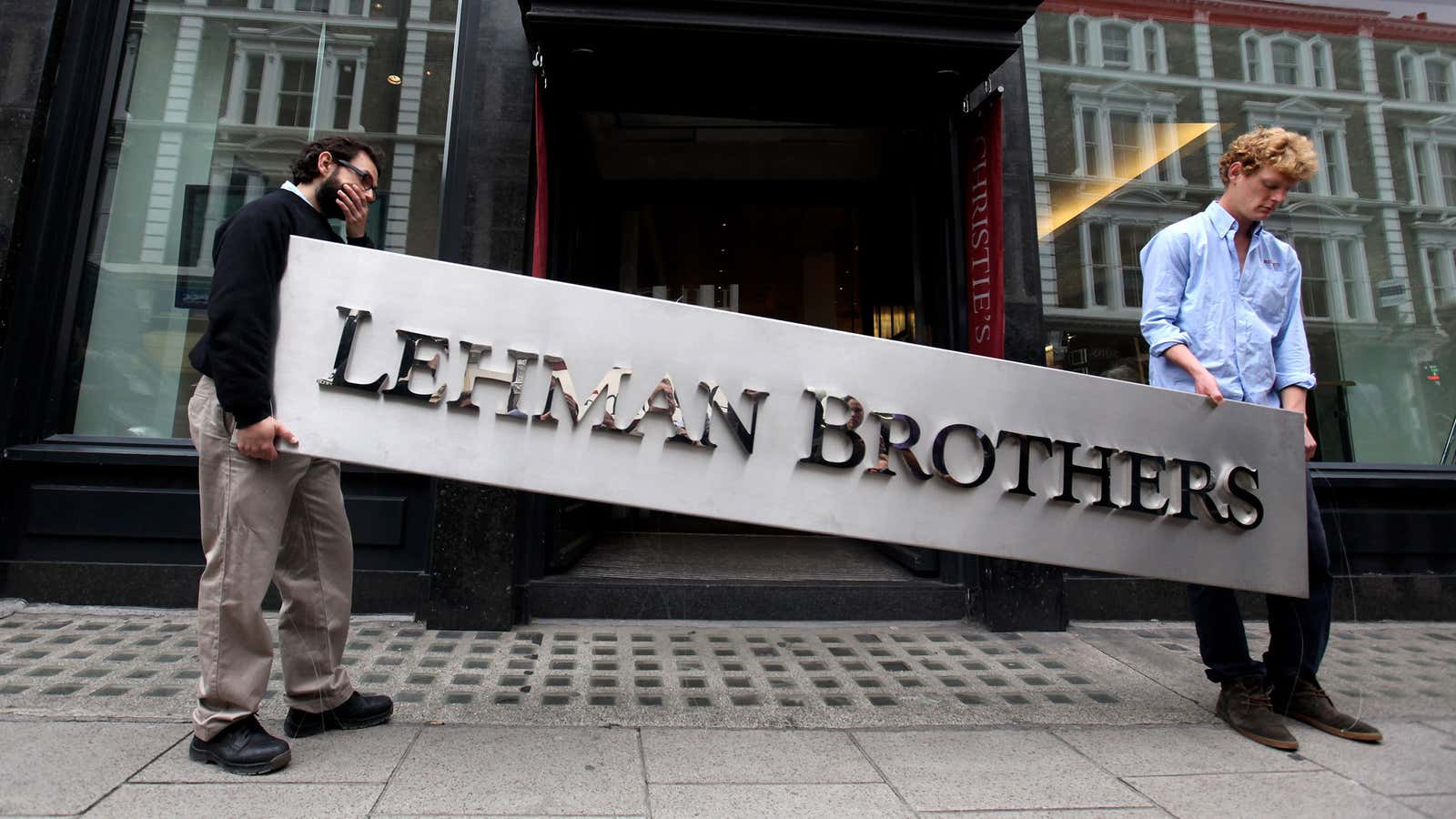Everyone is focused on the impending disaster of America’s “fiscal cliff” at the start of 2013, when automatic spending cuts kick in, tax cuts expire, and politicians have to fight another debate over the government’s debt ceiling. But to add to the turmoil, a raft of new regulations are due to come into force at around the same time—a “regulatory cliff” that is the other aftermath of the financial crisis. More than four years after the fall of Lehman Brothers, regulators are beginning to crack down on banks, law firms, and businesses, demanding that those companies managing consumer debts and deposits adhere to stricter standards.
For the most part, the regulations themselves aren’t a problem. But the sheer quantity of them, and the pace at which institutions will have to implement new policies, could be.
Swap central clearing. Derivatives and foreign-exchange transactions identified as “swaps” will be required to pass through clearing houses that make sure companies have their paperwork in order and can honor their commitments. These new measures attempt to increase scrutiny on the kinds of things financial institutions can trade, and make sure they have enough cash on hand to pay up even in worst-case scenarios.
The trouble is that these new rules require a rapid transformation and a whole lot of cash. Swaps are the complicated products that firms use to hedge just about every transaction they make, and the total market for them is $648 trillion. Firms will henceforth need to put up sizeable collateral to make these trades. In August, Morgan Stanley’s Interest Rate Strategy team estimated that people involved in trading these securities—particularly dealers, who match buyers and sellers—would need to raise $480 billion by 2013 to meet the new standards.
New scrutiny for banks of all sizes—and not just banks. Financial institutions small and large will be subject to new exams from the Consumer Financial Protection Board (CFPB). This will affect not only banks but law firms, which also handle debt collection.
There are two hurdles to this. First, preparing for an exam from the CFPB costs money, and it will be particularly taxing for smaller banks, which have never been subject to such rigorous tests. “They are not yet ready for the kind of exam that the CFPB will conduct,” says Alan Kaplinsky, the chair of the Consumer Financial Services Group at Ballard Spahr LLP, which has been advising banks on the transition. “I think unfortunately that a lot of exams are going to result in a lot of enforcement actions”—i.e., banks would be forced to pay fines.
Potentially more destabilizing, says Kaplinsky, are the new rules for law firms. There could, he thinks, be legal challenge, and not just to the regulations themselves. “I would think that whoever brought the suit would also challenge [CFPB Director] Richard Cordray’s appointment” because his position was never approved by Congress. If the challenge succeeds and Cordray goes, it would unsettle things further.
Uneven or inefficient regulation. In a poll of 480 institutional investors in 13 countries, Natixis Global Asset Management found that 78% of investors are concerned that “the staggered pace of implementing financial reform around the world is creating more, not less, systemic risk.” And 76% also worried that “the most significant unintended consequence of global financial regulatory reform will be less, not more, transparency on correlated credit/equity exposures, counterparty risk, etc.”
We’ve reported before on the unintended consequences of programs like quantitative easing, pointing out that, in an attempt to stimulate the economy, central banks may actually be papering over deeper problems. But investors also fear that too much regulation is happening too quickly, and without properly identifying the risks involved. Without global rather than national reforms, risk might simply move to different countries and financial instruments that regulators aren’t keeping track of.
After the financial crisis, it’s easy to argue that regulators should do more to make sure banks aren’t behaving badly. But the added costs of new rules may be a drag on economic recovery. Add that to new taxes occasioned by the fiscal cliff, which could take a bite out of money managers’ pockets, and it’s no surprise that financial institutions are worried about 2013.
